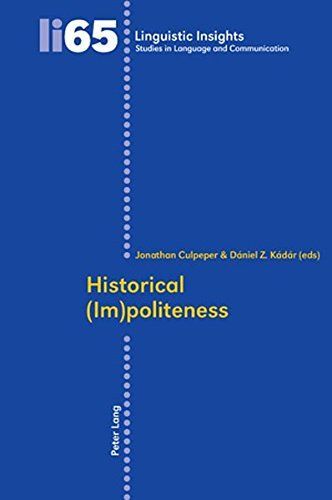
Historical (im)politeness
This edited collection investigates historical linguistic politeness and impoliteness. Although some research has been undertaken uniting politeness and historical pragmatics, it has been sporadic at best, and often limited to traditional theoretical approaches. This is a strange state of affairs, because politeness plays a central role in the social dynamics of language. This collection, containing contributions from renowned experts, aims to fill this hiatus, bringing together cutting-edge research. Not only does it illuminate the language usage of earlier periods, but by examining the past it places politeness today in context. Such a diachronic perspective also affords a further test-bed for current models of politeness. This volume provides insights into historical aspects of language, particularly items regularly deployed for politeness functions, and the social, particularly interpersonal, contexts with which it interacts. It also sheds light on how (social) meanings are dynamically constructed in situ, and probes various theoretical aspects of politeness. Its papers deploy a range of multilingual (e.g. English, Spanish, Italian and Chinese) diachronic data drawn from different genres such as letters, dramas, witch trials and manners books.